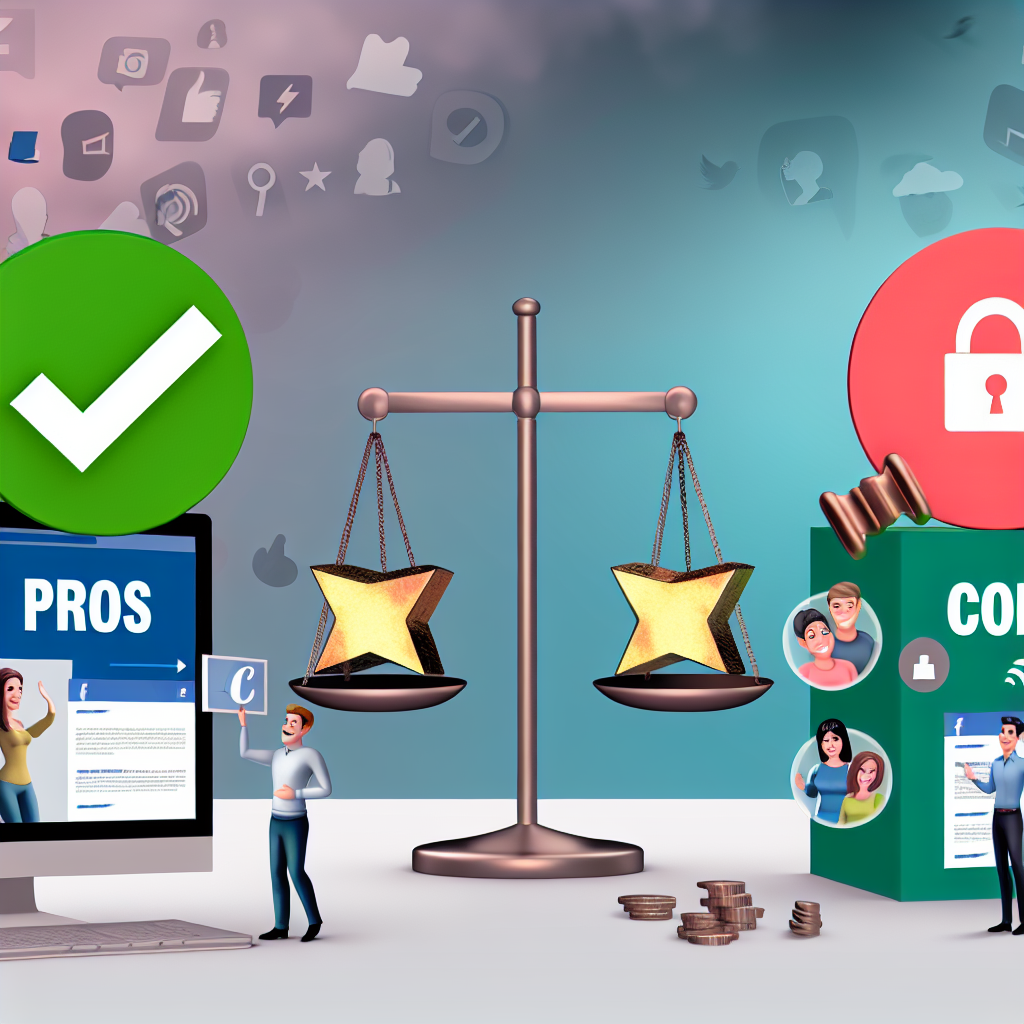Social Media Vetting in Modern Dating: Is It Helpful or Harmful?
Introduction
In today’s digital world, social media has become an integral part of our daily lives, influencing everything from career choices to personal relationships. For singles navigating modern dating, social media vetting—researching a potential partner’s digital footprint before engaging in a relationship—has become a widely used practice. While some see it as an essential due diligence tool, others argue it may set unfair expectations or invade privacy.
The practice of social media vetting is particularly popular among singles looking to gain a deeper understanding of a potential partner’s interests, lifestyle, social affiliations, and even red flags before meeting in person. From scrolling through Instagram posts to analyzing LinkedIn profiles for career stability, many daters claim that reviewing a potential match’s social media presence provides reassurance and additional insights that help determine compatibility.
However, this modern dating practice comes with both benefits and drawbacks. On the one hand, vetting can prevent dangerous encounters with catfishers, scammers, or individuals with questionable pasts. It allows users to assess whether someone’s online and real-life persona align, potentially saving them from heartbreak or misleading relationships. On the other hand, excessive vetting may lead to snap judgments based on superficial online representations rather than genuine connections formed through conversation and in-person experiences. It can also cause individuals to overanalyze minor aspects of a person’s digital presence, leading to unnecessary doubts and assumptions.
Moreover, there’s an ethical component to consider. While social media vetting may seem like a harmless approach to cautious dating, does it cross the line into digital stalking? Some argue that deep-diving into someone’s digital past, especially without their consent, removes the organic process of getting to know someone in a natural, authentic way. In the pursuit of protecting oneself from potential heartbreak, singles might accidentally set unrealistic standards based on carefully curated digital personas rather than real-world interactions.
As social media continues to evolve and affect dating dynamics, understanding both the pros and cons of this vetting strategy is crucial for developing healthy dating habits. Below, we delve into the benefits and limitations of social media vetting and its impact on modern relationships.
The Pros of Social Media Vetting: Safety and Compatibility
Social media vetting offers several advantages for singles looking to make informed dating decisions.
✅ Identifying Red Flags: Scanning a potential partner’s social media can reveal concerning behaviors such as aggressive comments, inappropriate posts, or a history of toxic relationships. This can help daters avoid harmful interactions early on.
✅ Ensuring Authenticity: Vetting can help confirm whether someone is who they claim to be. With the rise of catfishing and online dating scams, checking for consistency between their online persona and real-life claims can prevent deception.
✅ Assessing Lifestyle and Interests: Social media allows individuals to preview a potential partner’s interests, hobbies, and values. This can provide insight into compatibility, making it easier to gauge shared passions or lifestyle differences.
✅ Verifying Relationship Status: Checking social media might help prevent dating misunderstandings, such as unknowingly engaging with someone who is already in a relationship or married.
✅ Increasing Confidence Before Meeting in Person: Many singles feel more comfortable meeting for a first date when they have a general idea of who the person is based on their online presence.
The Cons of Social Media Vetting: Overanalyzing and Misjudgments
While social media vetting has its merits, it also comes with potential downsides that can negatively impact modern dating.
❌ Encouraging Snap Judgments: Online profiles rarely capture the full essence of a person’s personality. Relying too much on digital impressions may lead to hasty decisions that could sabotage great connections.
❌ Creating Unnecessary Doubts: Minor details like an old post, a harmless comment, or certain follows might be misinterpreted, leading to unnecessary overthinking and false assumptions.
❌ Fueling Confirmation Bias: People tend to focus on information that reinforces their prior beliefs. If someone already has doubts about a potential partner, social media vetting might lead them to find “evidence” that aligns with their concerns instead of giving the person a fair chance.
❌ Impacting Natural Relationship Progression: Dating should be an organic process where people learn about each other naturally over time. Social media vetting can unintentionally strip away the excitement of discovery.
❌ Raising Ethical Concerns: Some may argue that deep social media dives border on digital stalking, especially if the person being vetted is unaware that their online history is being scrutinized.
What Experts Say: Social Media’s Growing Influence on Dating
First Impressions Are Heavily Influenced by Online Presence
Psychologists and relationship experts emphasize how social media profoundly affects dating perceptions and trust. Research from the *Journal of Social and Personal Relationships* suggests that online self-presentation significantly impacts first impressions, leading to either increased attraction or hesitation [(Fox & Anderegg, 2019)](https://journals.sagepub.com/doi/10.1177/0265407518822780).
Similarly, a study from *Cyberpsychology, Behavior, and Social Networking* found that **60% of individuals admit to screening a romantic interest’s social media before a first date** [(Eaton et al., 2020)](https://www.liebertpub.com/doi/10.1089/cyber.2020.0095). This suggests that many people now rely on digital vetting to make early dating decisions.
The Pitfalls of Perceived Online Knowledge
A study in the *Journal of Computer-Mediated Communication* warns against the “illusion of knowledge” that comes from excessive online vetting [(Hall, 2018)](https://academic.oup.com/jcmc/article/23/3/125/5034317). Many people assume they fully understand a person based on social media alone, leading to inaccurate judgments and missed relationship opportunities.
Mental health professionals also caution against the anxiety that stems from constant social media analysis. A report from the *American Psychological Association (APA)* highlights how excessive online vetting **can foster insecurities and unrealistic expectations** in dating [(APA, 2021)](https://www.apa.org/news/press/releases/stress/2021).
How to Approach Social Media Vetting in a Healthy Way
To strike a balance between safety and fairness, consider these mindful vetting strategies:
✔️ Use Social Media as a Supplement, Not a Replacement: Gather insights without letting online content define your entire perception of a person.
✔️ Fact-Check Before Making Assumptions: Social media posts can be outdated or taken out of context. Try to verify information directly through conversation.
✔️ Limit Deep Dives Into a Person’s Past: Respect their privacy and focus on understanding their present rather than judging past online activity.
✔️ Prioritize Face-to-Face Interaction: No amount of social media research can replace genuine, in-person chemistry. Give people the chance to reveal who they truly are.
Conclusion: Finding the Right Balance
Social media vetting in modern dating offers both advantages and challenges. While it provides an extra layer of insight and safety for singles, it can also distort perceptions and create unrealistic expectations. The key to using social media vetting effectively is **moderation**—treating it as a helpful tool without allowing it to replace organic, in-person interactions.
As dating culture continues to evolve alongside digital advancements, maintaining a balance between curiosity and privacy will be essential for fostering healthy relationships. Instead of solely relying on curated online personas, singles should prioritize genuine face-to-face communication when forming meaningful romantic connections.
Summary:
Social media vetting in modern dating can provide valuable insights into a potential partner’s interests, lifestyle, and potential red flags. However, excessive vetting can also lead to snap judgments, unnecessary doubts, and ethical concerns. Experts emphasize the importance of using social media as a supplement, not a replacement, and prioritizing genuine in-person interactions to develop healthy dating habits.

Dominic E. is a passionate filmmaker navigating the exciting intersection of art and science. By day, he delves into the complexities of the human body as a full-time medical writer, meticulously translating intricate medical concepts into accessible and engaging narratives. By night, he explores the boundless realm of cinematic storytelling, crafting narratives that evoke emotion and challenge perspectives. Film Student and Full-time Medical Writer for ContentVendor.com




